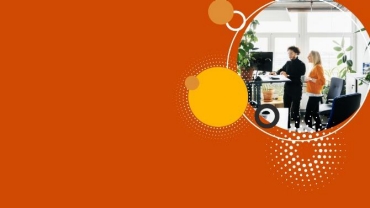
E-commerce and VAT: The state of affairs
15/09/20
In these times of Covid-19 and Brexit one would be almost forgiven for forgetting that radical changes to the VAT treatment of cross-border consumer supplies and services (for typical e-commerce businesses, as well as for more traditional business models) are soon to be implemented. Last summer the EU decided to postpone the implementation of the new rules by six months until 1 July 2021. This was a sensible decision given the circumstances. As a result, organisations now have more time to prepare and they certainly need to. A possible further postponement until 1 January 2022 is currently being proposed by the Netherlands and Germany.
In this piece we discuss the state of affairs as regards the implementation of the new rules in the Netherlands and the uncertainties that remain.

What might this mean for your organisation?
The new rules are extensive and detailed. The overview included below highlights these changes.
In essence, however, they will require that your organisation needs to be more knowledgeable of VAT rates and regulations in other EU countries, that the VAT treatment of many of your cross-border consumer supplies needs to be adjusted and that, in many cases, the compliance process must be completely overhauled.

Status of implementation in the Netherlands
On 14 July of this year, the Ministry of Finance sent the proposal for the Dutch Implementation Act for these amendments to Parliament. The explanatory memorandum to this proposal provides many practical examples to explain the complex new rules. However, this does not mean that all problems are solved and various uncertainties and concerns remain.
PwC contributed to the legal commentary published on 8 September by the Dutch Association of Tax Advisors. Most of the concerns are highlighted in the commentary. The hope is that these points will be touched upon later in the legislative process.

One Stop Shop system not available on time in the Netherlands
The main concern is that the Tax Authorities have indicated that, due to the state of their IT systems, it will not be possible to have the One Stop Shop system working properly in time. This One Stop Shop system is essential in the context of the new regulations, as it enables businesses to pay VAT as required in any EU member state for supplies to consumers via a single VAT return filed in one country. In fact, even the existing ‘Mini One Stop Shop’ will no longer properly function if the new rules are implemented without corresponding changes to the IT systems.
The Tax Authorities will be able to get a (temporarily) working system up and running at the earliest on 1 January 2022. For this reason the Netherlands and Germany have requested a further postponement of the new rules until 1 January 2022. The Budget Day Documents even state that the Netherlands currently estimates that they will not come into effect before 2022. At the moment, however, there does not seem to be sufficient support within the EU for a further delay. The six-month delay was already hard to digest for some EU countries and a further delay would result in a substantial loss of VAT income.
The Ministry of Finance is currently unable to clarify the consequences of this delay for organisations operating in the Netherlands. However, there is a fear that these organisations will face claims for damages. PwC is urging the Ministry of Finance to provide clarification as regards the consequences of the IT problems and the possible alternatives for organisations that want to use a One Stop Shop in the Netherlands as soon as possible.
Hijacking of VAT identification numbers
Under the new VAT rules for e-commerce it is possible - subject to conditions - to obtain a VAT exemption when goods are imported by providing a special VAT identification number upon importation. It is conceivable that malicious third parties will appropriate these VAT numbers (which companies will have to share with, for example, the carrier) and will then use them to request an exemption from import VAT on false grounds.
Up to now it has been unclear how the EU or the Ministry of Finance intends to prevent and/or combat such fraud and how they will prevent genuine organisations that are acting in good faith from becoming financial victims of such fraudulent practices.
Neither is the proposal fully fraud-proof on other points. PwC urges both the EU and the Ministry of Finance to take tangible actions before the rules enter into force to prevent any abuse.
Returns of goods and VAT refunds
In the e-commerce sector it is very common for supplies to be returned. Usually the price paid by the customer is refunded accordingly. It is clear that, if this happens, the supplier (or, where appropriate, the facilitating platform) will require a refund of VAT that has already been declared and paid. The Explanatory Memorandum to the proposed Dutch Implementation Act notes in this regard that such refunds are subject to the VAT rules of the country of consumption.
This means that, although an e-commerce organisation can rely on a single One Stop Shop VAT return, it must nevertheless set up a separate process for each country to which it is supplying in order to reclaim VAT on return shipments and retroactive rebates. PwC is in favour of this barrier being removed at EU level as soon as possible.
The way forward
The above issues are just the tip of the iceberg. We expect the European Commission to issue further explanatory notes which will provide more clarity shortly and we will keep you informed of this through our usual channels.
For now most organisations will have to make every effort to be prepared for the new rules in time, even if the implementation date were to be postponed until 1 January 2022.


















